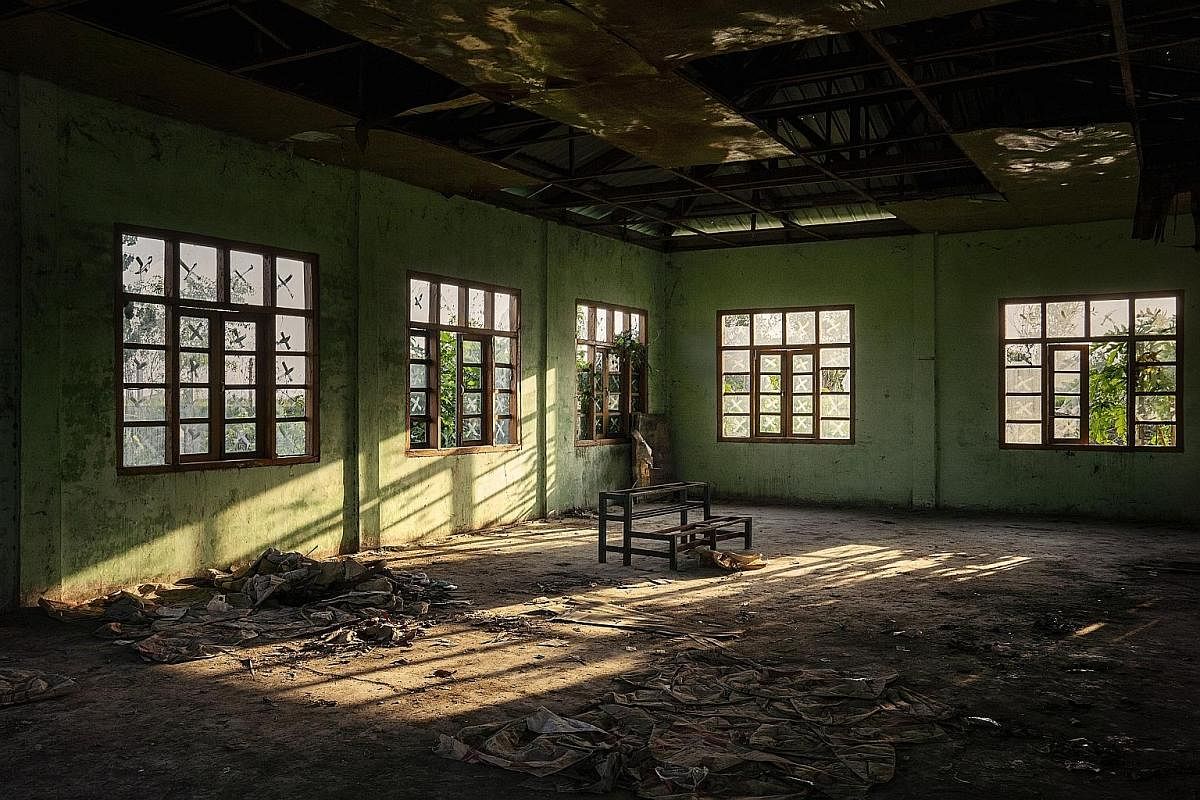'Kill all you see': In a first, Myanmar soldiers tell of Rohingya slaughter
In a first, Myanmar soldiers tell of Rohingya slaughter

NAYPYITAW • The two soldiers confess their crimes in a monotone, a few blinks of the eye their only betrayal of emotion: executions, mass burials, village obliterations and rape.
The August 2017 order from his commanding officer was clear, Private Myo Win Tun said in video testimony. "Shoot all you see and all you hear."
He said he obeyed, taking part in the massacre of 30 Rohingya Muslims and burying them in a mass grave near a cell tower and a military base.
Around the same time, in a neighbouring township, Pte Zaw Naing Tun said he and his comrades in another battalion followed a nearly identical directive from his superior: "Kill all you see, whether children or adults."
Pte Zaw Naing Tun said: "We wiped out about 20 villages." He added that he, too, dumped bodies in a mass grave.
The two soldiers' video testimony, recorded by a rebel militia, is the first time that members of the Tatmadaw, as Myanmar's military is known, have openly confessed to taking part in what United Nations officials say was a genocidal campaign against the country's Rohingya Muslim minority.
On Monday, the two men, who fled Myanmar last month, were transported to The Hague, where the International Criminal Court (ICC) has opened a case examining whether Tatmadaw leaders committed large-scale crimes against the Rohingya.
The atrocities described by the two men echo evidence of serious human rights abuses gathered from among the more than one million Rohingya refugees now sheltering in neighbouring Bangladesh.
What distinguishes their testimony is that it comes from perpetrators, not victims.

"This is a monumental moment for Rohingya and the people of Myanmar in their ongoing struggle for justice," said Mr Matthew Smith, chief executive at Fortify Rights, a human rights watchdog. "These men could be the first perpetrators from Myanmar tried at the ICC, and the first insider witnesses in the custody of the court."
The New York Times cannot independently confirm that the two soldiers committed the crimes to which they confessed. But details in their narratives conform to descriptions provided by dozens of witnesses and observers, including Rohingya refugees, Rakhine residents, Tatmadaw soldiers and local politicians.
And multiple villagers independently confirmed the whereabouts of mass graves that the soldiers provided in their testimony - evidence that will be seized on in investigations at the ICC and other legal proceedings. The Myanmar government has repeatedly denied that such sites exist across the region.
The crimes that the soldiers say were carried out by their infantry battalions and other security forces - some 150 civilians killed and dozens of villages destroyed - are just a part of Myanmar's long campaign against the Rohingya. And they portray a concerted, calculated operation to exterminate a single ethnic minority group, the issue at the heart of ongoing genocide cases.
The massacres of Rohingya that culminated in 2017 catalysed one of the fastest flights of refugees anywhere in the world. Within weeks, three-quarters of a million stateless people were uprooted from their homes in Myanmar's western Rakhine state, as security forces attacked their villages with rifles, machetes and flamethrowers. Old men were decapitated, and young girls were raped, their headscarves torn off to use as blindfolds, witnesses and survivors said.
Doctors Without Borders estimated that at least 6,700 Rohingya, including 730 children, suffered violent deaths from late August to late September 2017. Roughly 200 Rohingya settlements were completely razed from 2017 to last year, the UN said.
In a report published last year, a fact-finding mission for the UN Human Rights Council said "there is a serious risk that genocidal actions may occur or recur and that Myanmar is failing in its obligation to prevent genocide, to investigate genocide and to enact effective legislation criminalising and punishing genocide".
The Myanmar government has denied any orchestrated campaign against the Rohingya. In December, Ms Aung San Suu Kyi, the nation's civilian leader, defended Myanmar against charges of genocide in another case, this one at the International Court of Justice in The Hague.
Only a few Tatmadaw soldiers have been punished, with brief prison terms, for what the military says were isolated missteps in a couple of villages.
NYTIMES
Join ST's Telegram channel and get the latest breaking news delivered to you.
A version of this article appeared in the print edition of The Straits Times on September 10, 2020, with the headline 'Kill all you see': In a first, Myanmar soldiers tell of Rohingya slaughter. Subscribe
